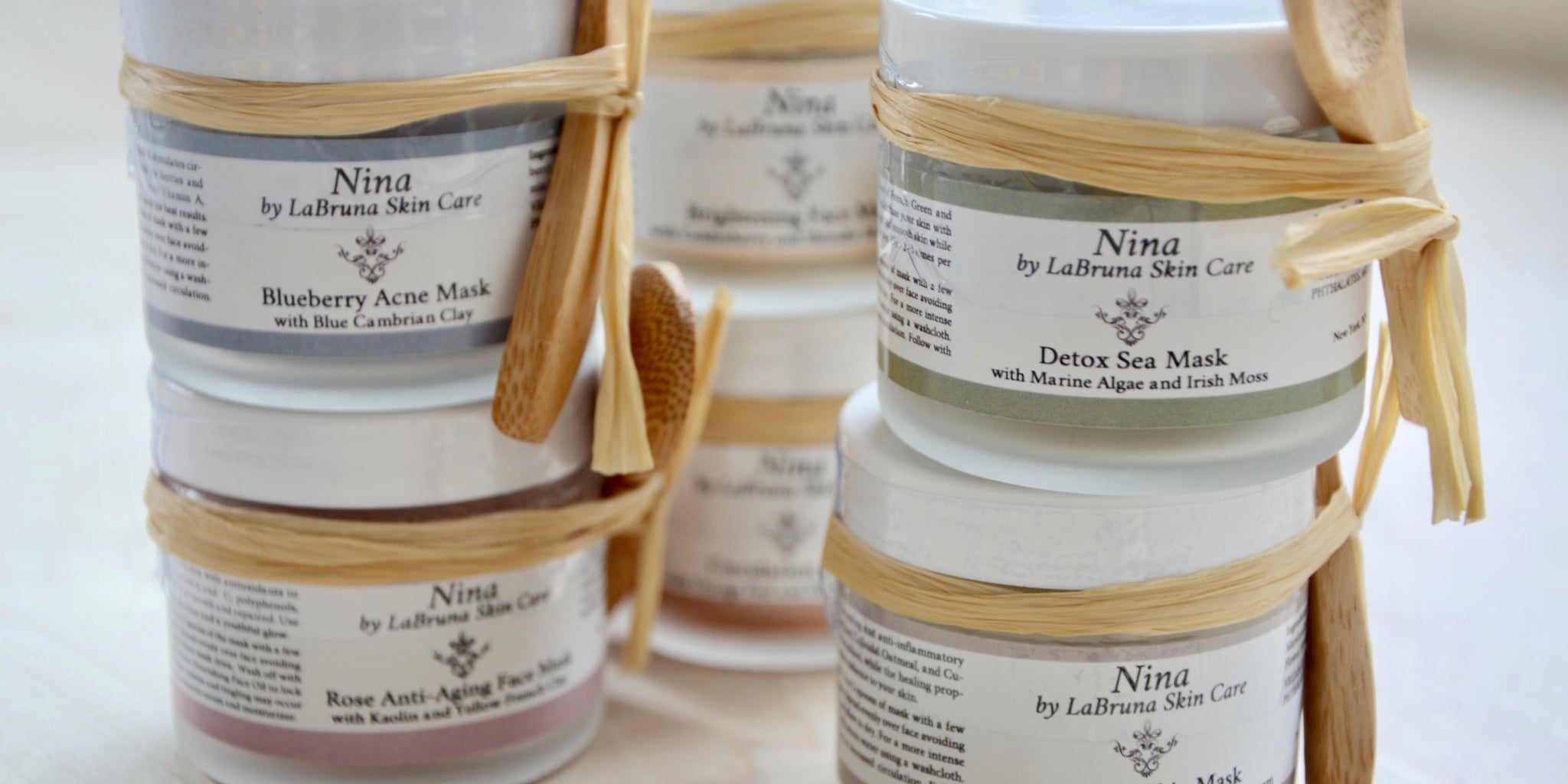by Sara Kalet-Schwartz April 24, 2020

At LaBruna Skin Care we offer a variety of six powdered masks that serve and target different skin concerns such as acne, hyperpigmentation, fine lines, redness and sensitivity. A powdered based mask eliminates the use of preservatives, which can cause redness and irritations. People with sensitive skin find our masks to be extremely soothing, because of the lack of preservatives. All our masks are natural and packed with antioxidant and phytonutrient rich ingredients. Since our masks are powdered they have to be mixed with a liquid additive. Below are a few ways you can mix your masks at home to achieve different results.
Water
The first substance you can use for mixing is water. This is the “go to” for a lot of people and is great for all six of our masks. You can never go wrong with a couple drops of water in your mask.
Raw Honey
The next substance we would like to highlight is raw honey, also known as unpasteurized honey. If you want to experiment past water, then honey is a great place to start. Honey contains antioxidants, antiseptic and antibacterial properties, which balances your skin to help fight acne by keeping your pores oil + dirt free, while also hydrating your skin to provide a clearer complexion. Raw honey is known for being an exfoliator, so when you wash it off your face it takes the dry and dull skin with it leaving a new fresh layer. This leaves your skin looking and feeling brighter and healthier. However, if you have any known allergies to pollen or bee venom, then use honey with caution and always test it on a small area of your body. We recommend mixing honey with water in order to liquidate it a bit. Honey works well with any of our masks and keeps the mask wet so you can wear it for longer. However, we definitely suggest trying honey with our Blueberry Acne Mask as the antibacterial properties provide further benefits.
Apple Cider Vinegar
Another great substance for mixing is apple cider vinegar. Although apple cider vinegar is safe to use on most people’s skin, an excess amount can cause irritations and those with sensitive skin may react to this ingredient. Always test it on a small area of your body before application to the face and diluting the vinegar with a couple drops of water is recommended. Apple cider vinegar can improve the texture and appearance of your skin. It also has anti-inflammatory properties and contains acetic and alpha hydroxy acids. Therefore, it can exfoliate the skin, reduce discoloration, unclog blocked pores and absorb excess oils, so it is good for aging or acne-prone skin. We recommend using it with our Blueberry Acne Masking, Brightening Face Mask and Rose Anti-aging Mask.
We want you to achieve the best results from using our unique face masks. Using different liquid additives is a wonderful way to increase the benefits of the mask for your skin. You could try mixing all three together or replace water with apple cider vinegar for liquidating the honey. Lastly, remember to test the honey and apple cider vinegar on a small part of your body before applying it to your entire face.
Comments will be approved before showing up.
by Alessia Burton February 22, 2023
Sara Kalet-Schwartz
Author